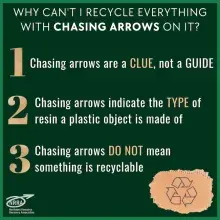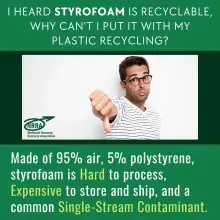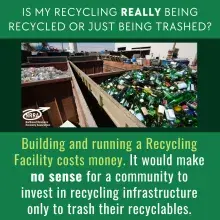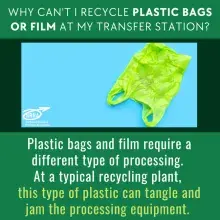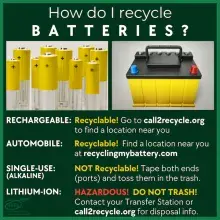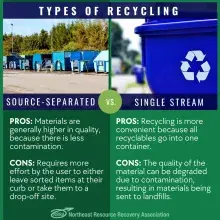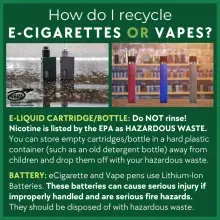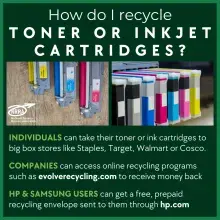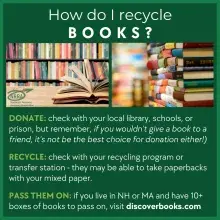Recycling Education: Why is source separated recycling beneficial? How do I recycle old books? Is my recycling REALLY being recycled?! In Recycling Education, we focus on the "why" behind recycling so residents have a better understanding about why their actions (or inaction) makes a difference, and the "how" of recycling unique or hazardous items.
How To Use the Recycle Right Toolkit:
- Click "Read More" on the post you are interested in sharing
- To quickly share the entire image and text to Facebook, click the blue "Share" button
- To share the image and text in an email, on a website, or through social media like Instagram
- Click the "Download Image" link to automatically save the image to your computer
- Click the "Copy Text to Clipboard" button to automatically copy the text that appears beneath the image
